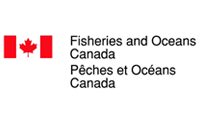
Call for Sessions opens September!
Wednesday, May 10
11:30–12:30
Toronto I & II
Free livestream on Zoom Webinar - Follow "Join" link shortly before event
People across northern countries have been using lake ice for centuries, including for refrigeration, transportation, recreation, and spirituality. As ice phenology (the timing of ice-on and ice-off) is a sensitive indicator of climate, we can use lake ice records to understand how climate is changing. Lakes are losing ice cover at unprecedented rates. On average, ice duration is shorter by 17 days per century. However, in the past 25 years, lake ice loss is six times faster at rates of 106 days per century. Lakes that historically froze every year are beginning to experience freeze-thaw events within a winter and in some years, may not freeze at all. By the end of the century, over 200,000 lakes may no longer regularly freeze every winter, and almost 6,000 lakes may permanently lose ice cover with climate warming. With reduced ice cover, lakes may stratify earlier which can lead to elevated water temperatures, primary production, and likelihood of algal blooms. With shorter and less reliable ice cover, thinner ice, and the increased formation of poorer quality ice with lower load-bearing capacity, we have observed an increase in winter fatal drownings through ice in warmer winters. Northern Indigenous communities who rely on ice for transportation and access to hunting grounds are at the highest risk of winter drownings. The loss of ice also contributes to shorter outdoor ice hockey and skating seasons, the delay in the construction of winter ice roads, and cancellation of skating and ice fishing tournaments, which all also translate into economic loss for local economies. Without climate change mitigation and adaptation, the loss of ice cover will continue to accelerate and impact the health of northern lakes and the people who depend upon them.
Sapna Sharma is an associate professor in the Department of Biology at York University. Her research highlights how lakes worldwide respond to climate change, including rapid ice loss, warming water temperatures, degrading water quality, and changing fish distributions. Her research has led to an induction to the Royal Society of Canada College of New Scholars, a prestigious Ontario Government Early Researcher Award, and York University President’s Emerging Research Leadership Award. She is a dedicated science communicator and is the founder of SEEDS, an outreach program for refugees. For her commitment to science outreach, she was invited to serve as Vice-Chair for the Royal Canadian Institute for Science and awarded the Canadian Council of University Biology Chairs Science Promotion Prize.
Sign up to receive conference news.